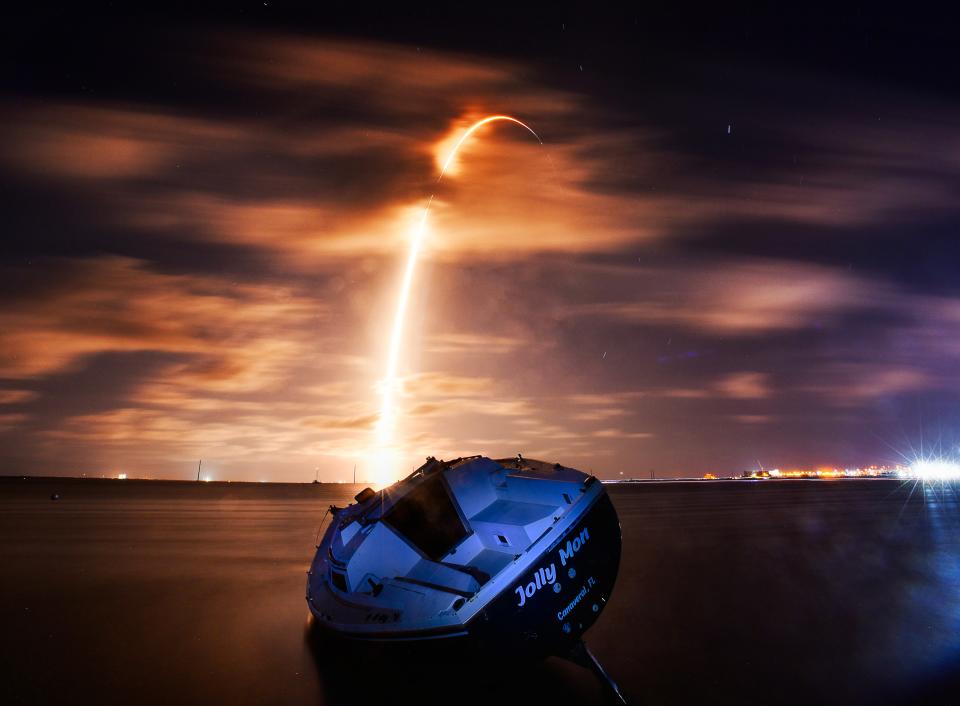SpaceX targeting atypical Thursday morning Falcon 9 rocket launch from Cape Canaveral
SpaceX is now targeting an unusually timed Thursday morning Falcon 9 rocket launch, hot on the heels of Tuesday's photogenic Falcon Heavy evening liftoff from NASA's Kennedy Space Center.
Thursday's Starlink 10-3 mission is scheduled for liftoff at 7:14 a.m. EDT, with backup opportunities available until 11 a.m.
The Falcon 9 will take flight from Launch Complex 40 at Cape Canaveral Space Force Station. Unlike the Falcon Heavy mission — when both rocket boosters descended for landings at the Space Force installation — Thursday's first-stage booster will target landing aboard a SpaceX drone ship out at sea more than 8 minutes after liftoff.
Therefore, no Central Florida sonic booms should occur.
Cape Canaveral: Is there a launch today? Upcoming SpaceX, NASA, ULA rocket launch schedule in Florida
The Space Force's 45th Weather Squadron reported 90% odds of "go for launch" meteorological conditions, with cumulus clouds posing the top threat.
"Surface high pressure will remain to our east, with the ridge axis lingering south of the FL peninsula through the end of week," the squadron's forecast said.
"Although sea breeze showers and thunderstorms are expected to develop in the afternoon and evening near the Cape, most of the spaceport should remain dry during the primary and back-up launch windows," the forecast said.

Tuesday's Falcon Heavy NASA launch from pad 39A sent the NOAA GOES-U weather satellite into geostationary orbit.
"Orbiting Earth at ~35,700 km, GOES-U will assist weather forecasters and climate researchers with real-time high-resolution imagery, earlier detection of severe weather that could save lives, and tropical cyclone forecasts," SpaceX officials said in a Tuesday night tweet about 4? hours after liftoff.
NOAA's launch team confirmed the satellite’s solar array panels had deployed, and GOES-U was operating under its own power Tuesday night.
Visit floridatoday.com/space Thursday morning for live FLORIDA TODAY Space Team launch coverage updates, starting about 90 minutes before the launch window opens.
Rick Neale is a Space Reporter at FLORIDA TODAY. Contact Neale at [email protected]. Twitter/X: @RickNeale1
This article originally appeared on Florida Today: SpaceX Falcon 9 rocket launch coming Thursday morning at Cape Canaveral
